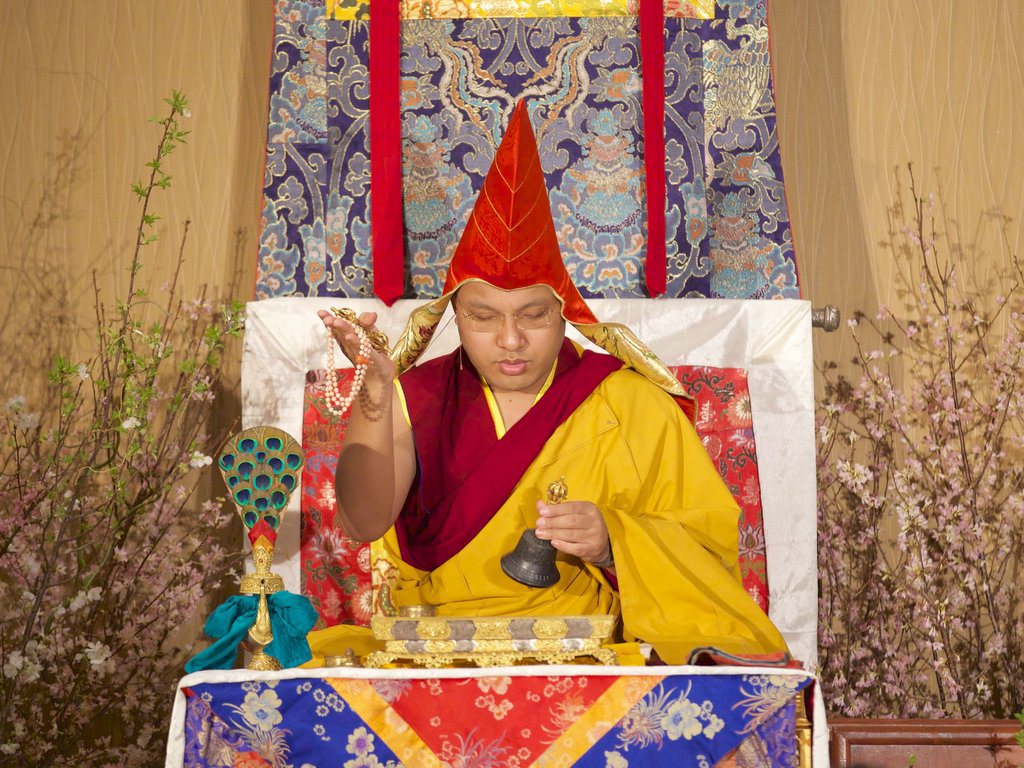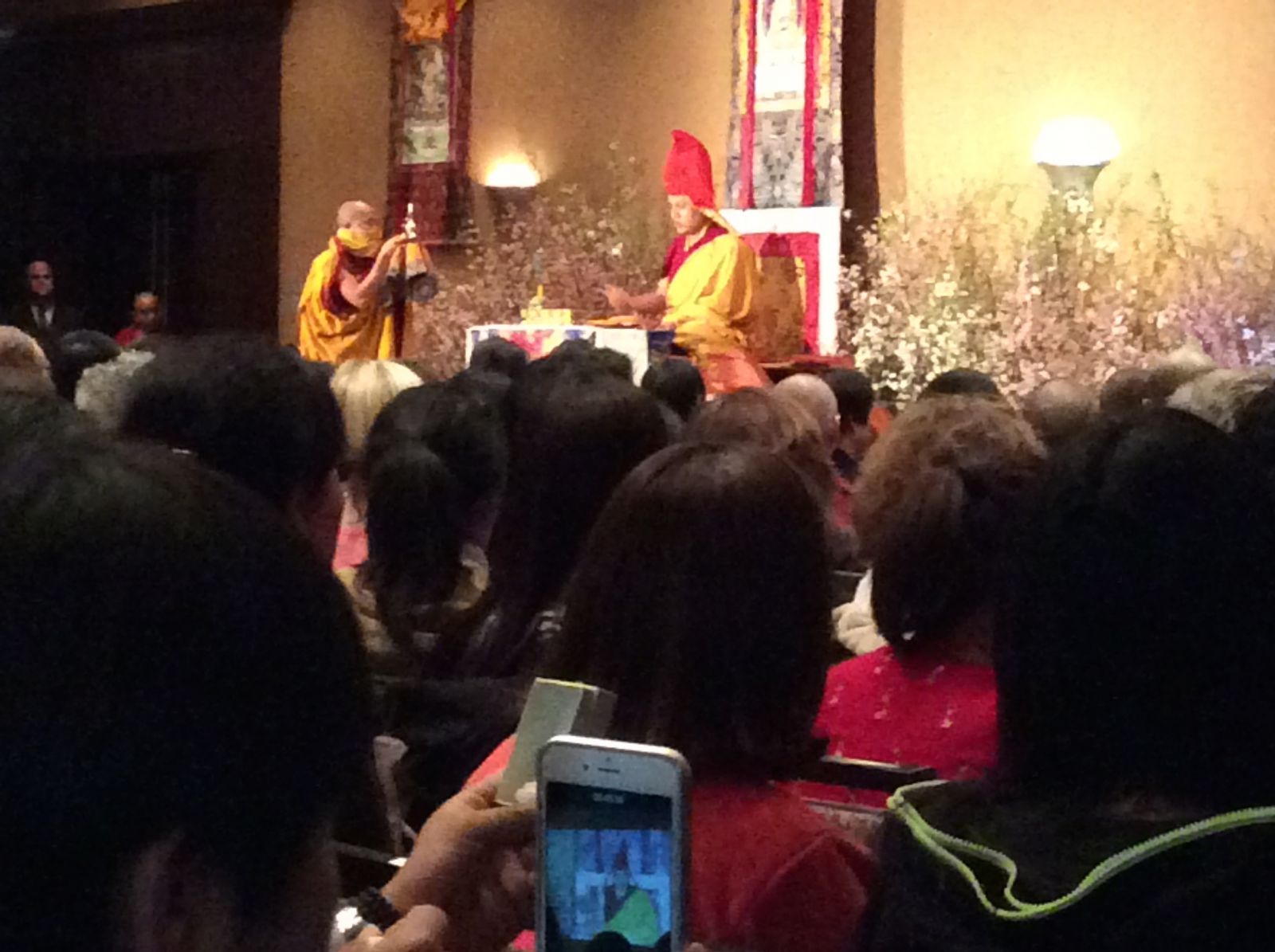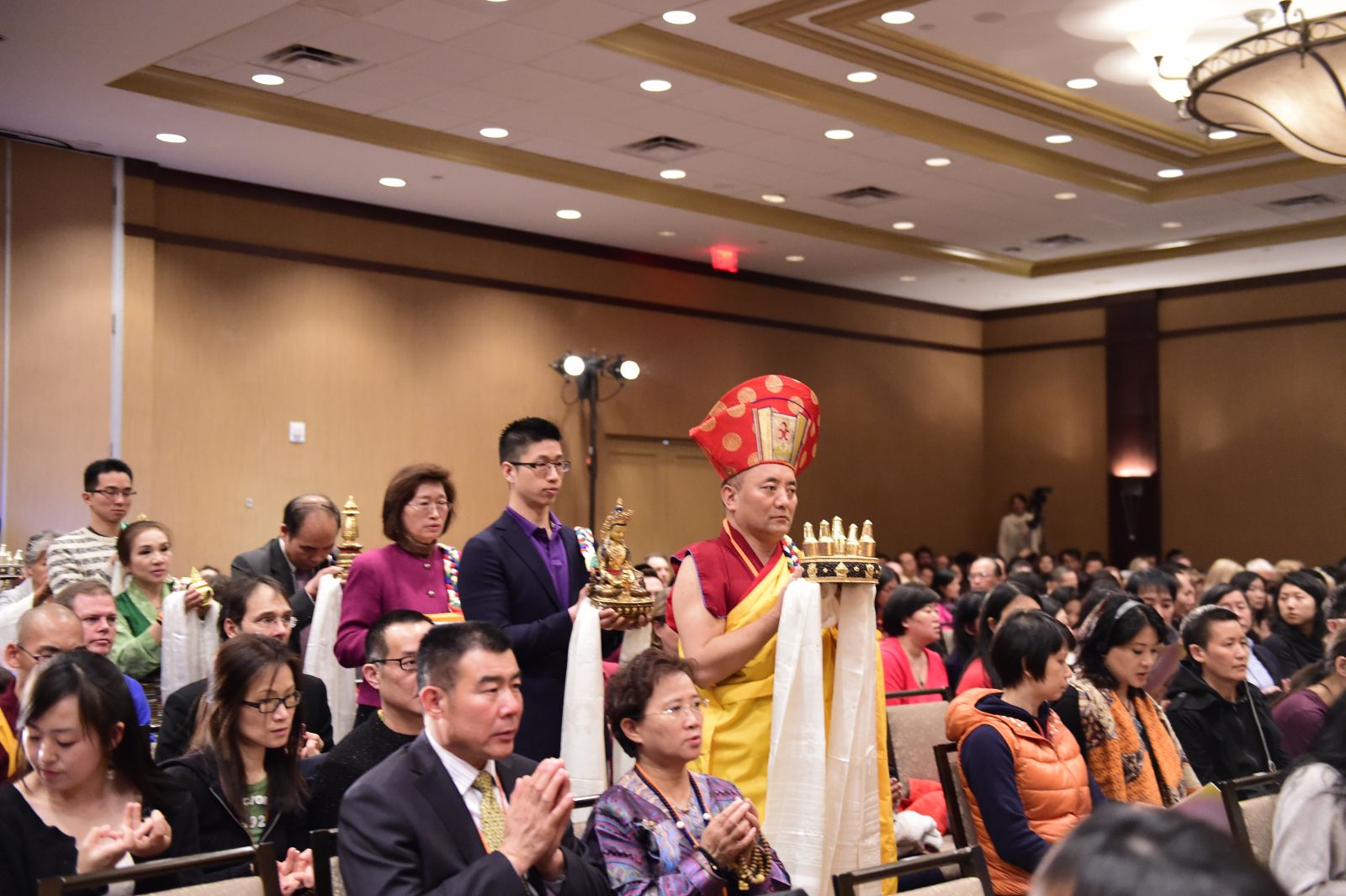Wearing the formal yellow Dharma robe, the Karmapa entered the hall and took his seat on the throne. He began the ceremony with the traditional offering to the local spirits and purification. As in all Tibetan Buddhist practices, here too, there is an emphasis on giving rise to bodhicitta, the compassionate commitment to practice for the benefit of others. An extensive mandala offering was then made by two monks wearing the classic Kagyu lama hats of red brocade.
The Karmapa spoke briefly about this Manjushri initiation, saying that it is a blessing or empowering ceremony. He continued to recite the text, which spoke of the lama and the yidam deity as inseparable and that the empowerment was for Manjushri and his consort Sarasvati. The Karmapa then bestowed the successive empowerments of the body, speech and mind of Manjushri, which become inseparable from our own.
In gratitude for receiving the initiation, the Karmapa was offered an extensive mandala and Lama Tsultrim, head of Karma Thegsum Chöling – New Jersey (KTC-NJ), led a line of offerings for the Karmapa’s long life. As the disciples passed by, the Karmapa leaned forward to drape a red blessing cord around the neck of each one. During the recitation of the offerings to his body, speech, mind, qualities, and activity, the Karmapa completed the ritual, his bell ringing through the chanting voices.
After the initiation, the 17th Karmapa continued the morning’s session of question-and-answer. The last question of the day was: “Since we have received the empowerment of Manjushri, what commitment do we have so that we can receive Manjushri’s blessing and increase our wisdom?”
His Holiness replied as follows: “It’s a difficult subject. Generally, whenever we receive an empowerment, there must be some kind of commitment. Wang means to ’empower,’ so empowerment means being authorized, being given the permission to do something. Having been empowered, you then have to perform this activity. For example, if you are given a job in an office, you are empowered to perform it, which gives you the responsibility of carrying it out. In the case of this empowerment, which gives you the empowerments of Manjushri’s body, speech and mind, you are empowered to cultivate them, and in the previous example of the office, this would be your job. So I couldn’t say there is no commitment. On the other hand, not all of you are ready to make a commitment to formal practice, so I can’t say that you must do this.
“In sum I would interpret it in this way: Manjushri embodies the wisdom of all the Buddhas, so the commitment is to cultivate wisdom, which is the essence or spirit of Manjushri. This means to look beyond mere appearances, to analyze and see the actual situation. For example, we may think of ourselves as independent, but we are actually interdependent—everything we consume and everything we use down to the air we breathe comes through the work and existence of others. So the commitment is to understand our interdependence and take responsibility based on that understanding.”
The Karmapa then gave a reading transmission for the practice of Manjushri the Lion of Speech, enabling those who have received the empowerment to engage in the practice. He concluded with thanks to the organizers, citing a prayer that offers “praise to all who are worthy of praise,” and transforming it here to give “thanks to all those who are worthy of thanks.”
Article Source; karmapaamerica2015.org


